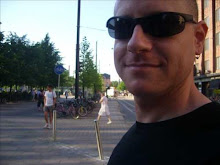Eight years were apparently enough time for the Toronto Blue Jays ownership to come to the conclusion that things weren't going to get much better for the club under GM J.P. Ricciardi. Ricciardi was fired earlier today in a move which has been seen by many observers to be long overdue.
The accumulation of poor personnel decisions; bad trades; financial miscalculations; open disputes with players and members of the media; and repeatedly firing managers all finally caught up to Ricciardi. With the entire Blue Jays organization in flux and preparations being made to trade Roy Halladay, the clock hit zero on Ricciardi's tenure. The only viable question is: what took so long?
It was with much bluster that Ricciardi arrived in Toronto in 2001 having made his name as the Director of Player Personnel for the Oakland Athletics under Billy Beane. The Blue Jays had hoped to hire Beane assistant Paul DePodesta, but when he declined the offer, they moved to the next man in the Athletics hierarchy and that was Ricciardi. Ricciardi immediately informed Blue Jays CEO Paul Beeston that the club was spending too much money and he'd make them cheaper and better rapidly.
In the ensuing eight years, the team was relentlessly mediocre. Occasionally terrible, mostly better than average, but never true contenders, under Ricciardi they made some ghastly personnel decisions that contributed to the club's reputation as one that would end the season with a respectable record more often than not, but would never be a legitimate threat for a playoff run.
After dispatching players that didn't fit into Ricciardi's Moneyball template of on base percentage and power, he began spending lavishly on such free agents as B.J. Ryan and A.J. Burnett. Both fit in with the Blue Jays as they performed brilliantly at times and were injured for long stretches. The biggest gaffes of Ricciardi's tenure were made with homegrown Blue Jays Vernon Wells and Chris Carpenter.
Wells was heading for free agency after the 2006 season and Ricciardi signed him to a 7-year, $126 million contract to keep him. The epitome of the pretty good player who was lavished with great player money, Wells has been injured and put up weak numbers since receiving that contract. Carpenter was abused by old-school manager Carlos Tosca, then released when his shoulder finally gave out in 2002. The Cardinals signed Carpenter, rehabilitated him and he developed into a Cy Young Award winner.
It wasn't just the personnel moves that doomed Ricciardi. The chip on his shoulder in dealings with the media (continuously insisting that some were "out to get him"); disputes with his own players (A.J. Burnett and Frank Thomas to name two); and opposing players (Adam Dunn) cast a pall over his tenure and gave him a reputation as a hothead who didn't think before he spoke.
Those mistakes and that he employed four different managers in his eight years and displayed rampant paranoia were bad enough; but it was the inability to trade Roy Halladay at mid-season 2009 that sealed Ricciardi's fate.
Roy Halladay had been nothing but a loyal Blue Jay during his entire career. Signing for below market value to stay, sitting quietly while the team never once contended as he was racking up wins and innings and garnering a reputation as one of the guttiest and most durable pitchers of this era, Halladay had finally had enough and politely asked to be traded in mid-2009. Ricciardi sifted through the offers and----with demands befitting a star pitcher under contract through 2010----turned down every lucrative offer that came his way, claiming that teams such as the Phillies hadn't offered enough. The Phillies instead traded for another former Cy Young Award winner in the Indians Cliff Lee, leaving Ricciardi with a disgruntled ace whose value was sure to decline.
In the end, the Blue Jays collapse from a team that was 13 games over .500 and in first place on May 18th to the monstrosity they've been over the last three months of the season was enough of a reason to make a change in the GM's office; but it's more likely that the way the Blue Jays players appeared to quit over the last month-and-a-half, along with the reality that Ricciardi could not be allowed to make such an important trade for the future of the franchise spurred interim CEO Beeston to make the decision to dismiss Ricciardi.
Considering his track record on and off the field, this should've happened long ago and the club will be better for it both on and off the field in perception and practice.
Saturday, October 3, 2009
Subscribe to:
Post Comments (Atom)

No comments:
Post a Comment